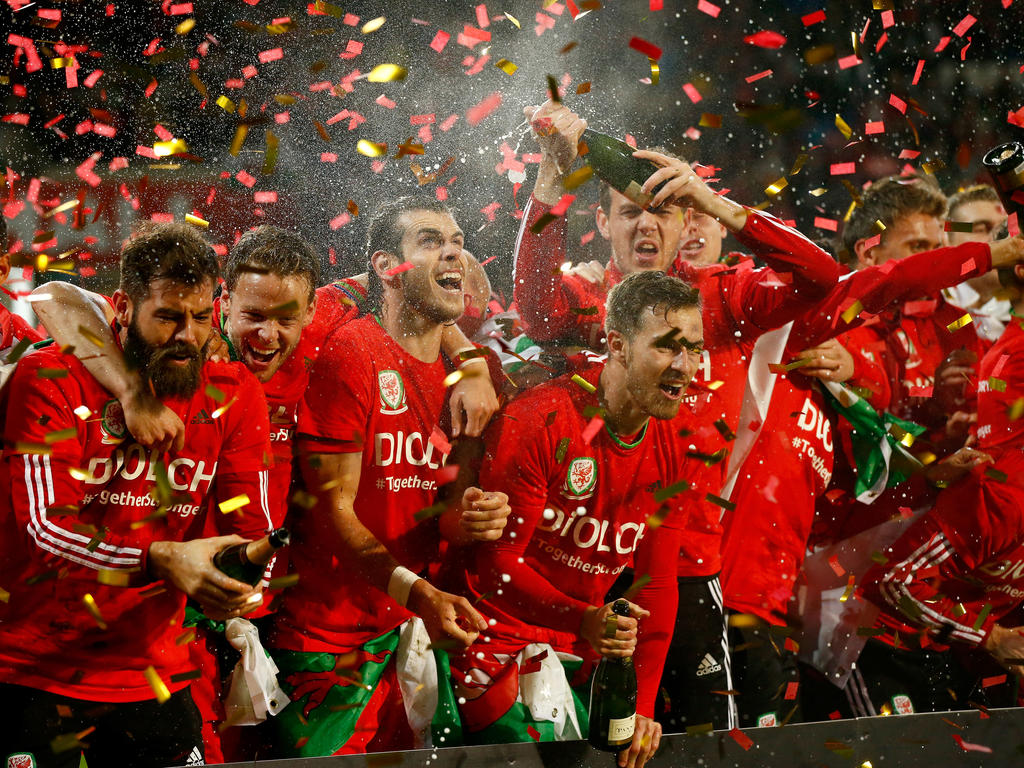Britain and Ireland descend on France

Saturday's draw for the 2016 European Championship will feature four teams from the British Isles, which has happened only once before at a major tournament -- the 1958 World Cup.
Habitual qualifiers England will be joined in France by Northern Ireland, the Republic of Ireland and Wales, with Gordon Strachan's Scotland the only one of the Home Nations to miss out.
Next year marks the 50th anniversary of England's one and only major tournament success, the 1966 World Cup, won on home soil. The country's fans have since grown wearily accustomed to a two-year cycle of false dawns.
England have reached only three major semi-finals since then and crashed out of last year's World Cup in the group phase, having lost on penalties to Italy in the last eight at Euro 2012.
But Roy Hodgson's team, currently ranked ninth by FIFA, could scarcely have qualified more impressively, winning all 10 of their Group E matches.
Led by Wayne Rooney, whose seven goals included a record-breaking 50th in England's colours, they had the second-best attack (31 goals) and the second-best defence (three goals conceded) on the continent.
"This group of players won't let anyone down in terms of their attitude and desire," said manager Roy Hodgson, whose youthful squad includes Tottenham Hotspur striker Harry Kane and Everton playmaker Ross Barkley.
"If they do fail, it might just be because of inexperience or a lack of quality."
The smallest of the Home Nations, with a population of 1.85 million, Northern Ireland benefited from the tournament's expanded format to qualify for a first major tournament since the 1986 World Cup.
But Michael O'Neill's men did not enter via the back door, finishing above Romania and Hungary at the top of Group F thanks in no small part to the seven goals of Norwich City's Kyle Lafferty.
O'Neill has overseen a rise from 88th to 30th in the FIFA ranking, having galvanised a squad reeling from a disastrous 2014 World Cup qualifying campaign that featured a humiliating 3-2 loss to Luxembourg.
"There was a period when Michael went a number of games without a win, but he stuck with it and never gave up," said Nigel Worthington, one of O'Neill's predecessors.
O'Neill's squad is a blend of experience and youthful vigour, the guile of Chris Baird (33) and Gareth McAuley (36) supplemented by the verve of players like 20-year-old Manchester United defender Paddy McNair.
Dealt a daunting group featuring world champions Germany, Poland and Scotland, Ireland qualified via the play-offs to reach a second successive European Championship for the first time in the country's history.
Manager Martin O'Neill has formed a successful good cop/bad cop routine with former Manchester United captain Roy Keane and saw his side take four points from Germany en route to a third-place finish in Group D.
Ireland, 31st in the FIFA ranking, subsequently overcame Bosnia-Herzegovina 3-1 on aggregate in an impressive play-off performance.
Ireland's is an ageing squad, featuring two centurions in John O'Shea (33) and record scorer Robbie Keane (33), but they can count on the boisterous support of their huge legion of travelling fans.
"We do not want to go there just to make up the numbers," says Roy Keane. "We will go there to do the country proud and put on a good performance."
Like Northern Ireland, Wales will grace a European Championship for the first time, having ended a 57-year wait to qualify for a major tournament.
Gareth Bale and Aaron Ramsey succeeded where Ryan Giggs failed, the former scoring seven of his side's 11 goals as Wales took second spot in Group B behind Belgium, who they beat 1-0 in Cardiff last June.
"The team were labelled the 'golden generation' before they'd earned it," said manager Chris Coleman. "Now they've earned it."
Coleman, successor to the late Gary Speed, introduced a 3-5-1-1 system that allied Bale's pace with a rock-solid defence, marshalled by Swansea City's Ashley Williams, that conceded only four goals.
Currently ranked 17th by FIFA, having risen as high as eighth in October, Wales are demonstrating that rugby is not the only sport that quickens the pulse of the country's 3.06 million inhabitants.









